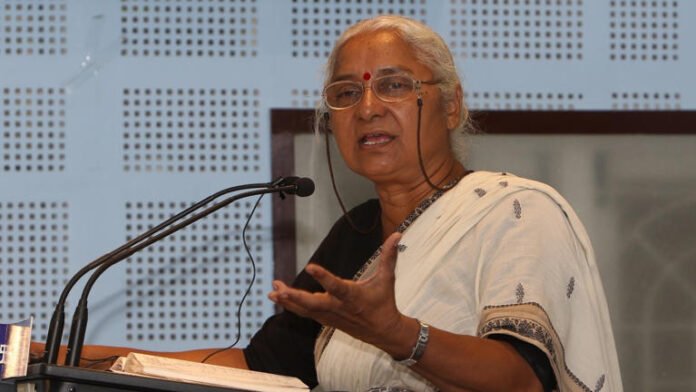Renowned social activist Medha Patkar has recently found herself embroiled in controversy after being convicted in a defamation case filed against her by the Lieutenant Governor of Delhi. The verdict has sparked debates and discussions about freedom of speech, the role of activism in democratic societies, and the power dynamics between government officials and civil society advocates.
Medha Patkar, known for her decades-long advocacy for social justice and environmental conservation, has been at the forefront of numerous grassroots movements across India. From her early days as a leader of the Narmada Bachao Andolan, fighting against the displacement of communities due to dam construction, to her more recent involvement in campaigns against land acquisition and environmental degradation, Patkar has been a tireless advocate for marginalized communities and the protection of natural resources.
However, Patkar’s activism has not been without controversy, and she has faced criticism and legal challenges from government authorities on multiple occasions. The defamation case filed against her by the Lieutenant Governor of Delhi is just the latest in a series of legal battles that Patkar has fought in defense of her principles and beliefs.
The case stems from remarks made by Patkar during a public event, where she allegedly made defamatory statements against the Lieutenant Governor. The remarks in question reportedly accused the Lieutenant Governor of engaging in corrupt practices and favoritism, prompting him to file a defamation suit against Patkar.
After a lengthy legal battle, a court in Delhi recently ruled in favor of the Lieutenant Governor, finding Patkar guilty of defamation and ordering her to pay a fine as well as issue a public apology. The verdict has drawn mixed reactions, with some praising the court’s decision as a victory for justice and accountability, while others view it as an attack on free speech and dissent.
Supporters of Medha Patkar argue that the defamation case is a thinly veiled attempt to silence her and other activists who speak out against government policies and actions. They point to the broader context of increasing repression of civil society in India, where activists, journalists, and dissenting voices are often targeted and harassed for their advocacy work.
Critics of the verdict, including human rights organizations and civil liberties groups, have condemned the court’s decision as a violation of freedom of expression and a chilling effect on activism. They argue that defamation laws are often used by powerful individuals and institutions to suppress dissent and intimidate critics, undermining the democratic principles of accountability and transparency.
The case has also raised questions about the role of activism in democratic societies and the responsibilities of government officials in upholding the rights of citizens. While public officials have a legitimate interest in protecting their reputation and integrity, they also have a duty to respect and uphold the fundamental rights enshrined in the constitution, including the right to freedom of speech and expression.
As the verdict in Medha Patkar’s defamation case continues to reverberate, it serves as a sobering reminder of the challenges faced by activists and civil society organizations in their efforts to hold government officials accountable and advocate for social change. It also highlights the importance of safeguarding democratic institutions and ensuring that the rule of law is applied fairly and impartially.
Moving forward, it is essential for all stakeholders, including government authorities, civil society organizations, and the judiciary, to uphold the principles of democracy, transparency, and accountability. Only by protecting the rights of citizens and fostering an environment conducive to free and open debate can we ensure a vibrant and inclusive democracy where all voices are heard and respected.

